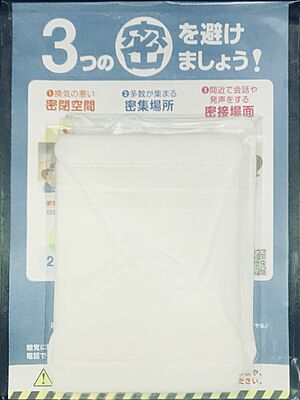Abenomask facts for kids
The Abenomask is a special word used in Japan. It got its name from Shinzo Abe, who was the Prime Minister of Japan. This word has two main meanings.
First, it refers to a big plan by the Japanese government. During the COVID-19 outbreak, the government decided to give reusable surgical masks to every single family in Japan. This was done to help stop the spread of the virus.
Second, "Abenomask" also means the actual surgical masks that were given out as part of this plan. So, it's both the name of the policy and the masks themselves.
Contents
What Was the Abenomask Policy?
The Abenomask policy was a unique effort by the Japanese government. It aimed to provide protective masks to everyone. This happened when the world was facing the COVID-19 pandemic. Many countries were trying to find ways to keep their citizens safe.
Why Were Masks Given Out?
Masks are important for slowing down the spread of germs. When people wear masks, they help protect themselves and others. The government wanted to make sure everyone had access to masks. This was especially important when masks were hard to find in stores.
How Did the Policy Work?
Under the Abenomask policy, each household in Japan received two cloth masks. These masks were reusable, meaning they could be washed and worn again. The idea was to make sure every family had some protection. This was a direct way for the government to help its people during a health crisis.
Similar Actions in Other Countries
Japan was not the only country to take steps like this. Many other places around the world also tried to help their citizens get masks. For example, countries like Spain and the United States also had their own ways of distributing masks or encouraging their use. These actions showed how governments worldwide worked to protect public health during the pandemic.
 | Tommie Smith |
 | Simone Manuel |
 | Shani Davis |
 | Simone Biles |
 | Alice Coachman |


